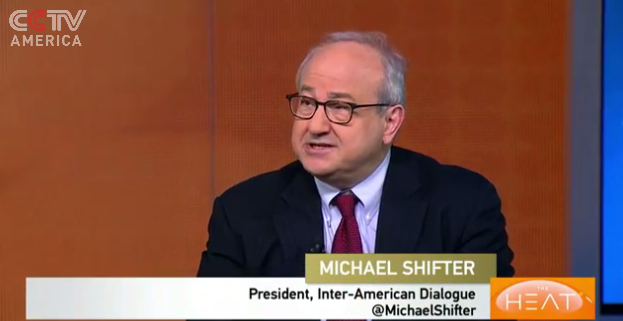Obama & Latin America: New Beginnings, Old Frictions
Today, signs of frustration are unmistakable in Washington and in many Latin American capitals, despite Obama’s immense personal appeal and the continued promise of a more productive partnership.
More than five decades of war appears to be over as the Colombian Congress ratifies a new peace deal with FARC rebels.
More than 220,000 dead. As many as 5 million displaced – more than one out of every ten Colombians. But on Nov. 30, what began in 1964 with rebels wanting to forcibly redistribute wealth, appears to have ended when Colombia’s legislature formally ratified a revised peace agreement.
The new deal includes 50 changes to an initial one narrowly rejected by voters in October. Among the modifications — a commitment from FARC to forfeit assets, some achieved through drug trafficking, to help compensate victims of the conflict. Under the agreement the rebels have up to six months to demobilize, disarm and report to camps overseen by a United Nations peace force. But FARC is already balking until, they say, an amnesty law is in place pardoning rebels not accused of war crimes.
This panel discusses the new FARC police deal and the future of the conflict in Colombia:
“Putting up again [the agreement with the FARC] for a plebiscite or a referendum could have been very risky, costly, would have taken more time, and there was concern that the situation could get worse, so it was important to have a deal in place.”
“Certainly, looking forward, it is going to be difficult [for Colombia to implement the agreement]. The country is polarized, and there is no question about it.”
“It remains to be seen whether the government and the FARC can adhere to that timeline they set. We can expect some delays.“
“The big disagreement [in the deal with the FARC] is the point on political participation - this is something that is unacceptable to the leaders of the ‘No’ campaign, but the government claims that the FARC would have not accepted anything else.“
“Effective implementation requires cooperation with local authorities, with communities, and to the extent that there is that disagreement, and that Uribe promotes resistance and opposition to this deal, it makes it more complicated [to implement it].”
“There is going to be a second plebiscite for the peace deal. The first one was rejected on October 2nd. The second one will be the next presidential election in 2018, because this is going to be the main issue. Uribe can’t run again, but Uribe will have his candidate, who will represent an opposition to this agreement.”
“Santos has until August 2018 to show the results of the agreement and to try to convince people that this agreement was a good one, that it is working for them, that there is attention given to the neglected areas of the country, that many from the FARC are being successfully reintegrated into society and are participating in the economy. But if it is not done well, then Uribe, his party, and his candidate will be in a strong position in 2018.”
“It is unrealistic to expect that all of the FARC will completely extricate itself from the drug trade. They’ve made this commitment, is part of the peace deal, I think the leadership is behind it, but there are members of the FARC that are making a lot of money, that are doing well, and it is going to be very hard for them to leave it.”
“I think we have to be realistic about what is going to happen – it is not like the whole FARC is going to become demobilized and reintegrated. There is a part of the FARC that is going to continue to be involved in illegal activities, whether the drug trade, illegal mining, or other illicit activities in Colombia. The temptations and the incentives are great, and so I think we should see this as a positive step, but it doesn’t mean that it is going to end all illegal activity.”
Today, signs of frustration are unmistakable in Washington and in many Latin American capitals, despite Obama’s immense personal appeal and the continued promise of a more productive partnership.
Colombia and Venezuela have a history of rocky relations characterized by short bursts of improvement and deterioration.
On August 7, an important chapter in Colombian-Venezuelan relations that has coincided with the presidencies of Alvaro Uribe and Hugo Chavez will come to an end. These last eight years have been a rollercoaster, with moments of great tension but also occasional pragmatism.
 CCTV America
CCTV America